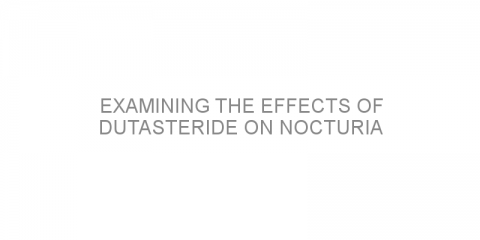In a nutshell This study analyzed the association between benign prostatic hyperplasia (BPH) and prostate and bladder cancer. Researchers concluded that the risk of prostate and bladder cancer is increased in men with BPH. Some background BPH can lead to bothersome urinary symptoms that can impact quality of life. BPH has also been associated with...
Read MoreBenign prostatic hyperplasia Posts on Medivizor
New surgical techniques for benign prostatic hyperplasia – an overview
In a nutshell This review outlined recent advances in surgical techniques for benign prostatic hyperplasia (BPH). The authors concluded that new technologies for treating BPH are promising. However, further randomized trials are needed. Some background BPH can lead to bothersome urinary symptoms that often require surgery targeting the enlarged...
Read MoreCranberry fruit powder more effective than placebo at reducing urinary symptoms
In a nutshell This study evaluated the effectiveness of Flowens (a cranberry fruit powder) as an alternative treatment for benign prostatic hyperplasia (BPH). Researchers report preliminary evidence that Flowens can reduce BPH-related urinary symptoms. Some background BPH can lead to bothersome urinary symptoms that can impact quality of life. The...
Read MoreFour years on: Desmopressin for reducing nocturia
In a nutshell This review evaluated the long-term effects and safety of desmopressin (Minirin) for the treatment of nocturia. Researchers concluded that desmopressin is a safe and effective treatment option for nocturia. Some background A common symptom of benign prostatic hyperplasia (BPH) is nocturia, the need to wake up and pass urine during...
Read MoreSilodosin: A promising alpha-blocker for treating BPH
In a nutshell This study evaluated the safety and effectiveness of silodosin (Rapaflo) in treating urinary symptoms among men with benign prostatic hyperplasia (BPH). Researchers concluded that silodosin is well-tolerated and significantly improves a range of urinary symptoms in most men. Some background Drugs that are commonly prescribed for...
Read MoreAlpha-blockers and urinary obstruction
In a nutshell This study evaluated the effects of alpha-blockers on urinary obstruction among men with benign prostatic hyperplasia (BPH). The authors concluded that alpha-blockers are effective at improving urinary flow and BPH-related urinary obstruction symptoms. Some background Alpha-blockers are often the first choice for treating BPH-related...
Read MoreExamining the effects of dutasteride on nocturia
In a nutshell This study evaluated the effectiveness of dutasteride (Avodart) for the treatment of nocturia among men with benign prostatic hyperplasia (BPH). The authors concluded that dutasteride shows some benefit at reducing episodes of nocturia. Some background Nocturia refers to a frequent need to wake up at night and pass urine. Nocturia...
Read MoreObesity, diabetes, and cholesterol: Managing metabolic factors can reduce BPH symptoms
In a nutshell This review outlined the effects of metabolic factors (such as obesity, diabetes, and cholesterol levels) on benign prostatic hyperplasia (BPH). The authors concluded that weight loss, physical activity, and proper treatment of metabolic disorders can help reduce BPH symptoms. Some background The occurrence and symptoms of...
Read MoreHerbal extracts as effective as drug therapies in reducing nocturia
In a nutshell This study evaluated the effectiveness of PRO 160/120 (Prostagutt) for the treatment of nocturia among men with benign prostatic hyperplasia (BPH). The authors concluded that PRO 160/120 is a suitable alternative to common drug therapies in reducing episodes of nocturia. Some background Frequently waking up at night to urinate...
Read MoreProstate artery embolization also suitable for older men
In a nutshell This study examined prostate artery embolization as a minimally invasive procedure to reduce prostate size in older men with benign prostatic hyperplasia (BPH). The researchers concluded that prostate artery embolization is a safe and effective treatment option for younger as well as older men wit BPH. Some background BPH can lead...
Read MorePDE5 inhibitors can also treat urinary symptoms
In a nutshell This study evaluated the use of PDE5 inhibitors for the treatment of benign prostatic hyperplasia (BPH) related urinary symptoms. Researchers concluded that PDE5 inhibitors are effective at improving urinary symptoms as well as erectile function in men with BPH. Some background Phosphdiesterase-5 (PDE5) inhibitors, such...
Read MoreSexual function after BPH procedures
In a nutshell This study evaluated how different surgical procedures used to treat enlarged prostates can affect sexual function. While sexual dysfunction is common after most surgical procedures, researchers concluded that some procedures are better than others in preserving sexual function. Some background Benign prostatic hyperplasia (BPH)...
Read More












